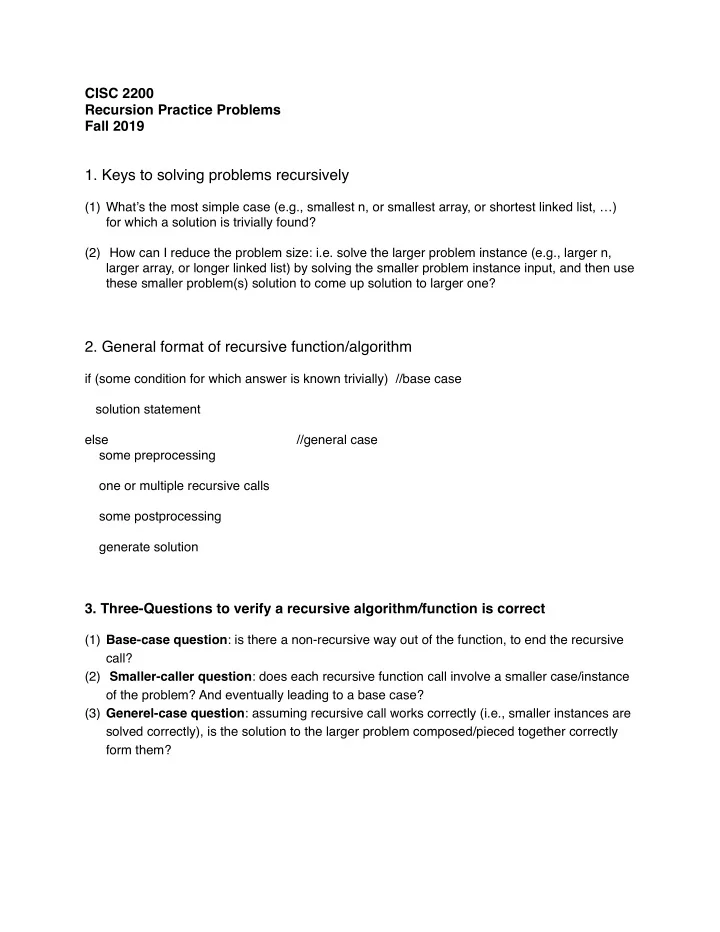

CISC 2200 Recursion Practice Problems Fall 2019 1. Keys to solving problems recursively (1) What’s the most simple case (e.g., smallest n, or smallest array, or shortest linked list, …) for which a solution is trivially found? (2) How can I reduce the problem size: i.e. solve the larger problem instance (e.g., larger n, larger array, or longer linked list) by solving the smaller problem instance input, and then use these smaller problem(s) solution to come up solution to larger one? 2. General format of recursive function/algorithm if (some condition for which answer is known trivially) //base case solution statement else //general case some preprocessing one or multiple recursive calls some postprocessing generate solution 3. Three-Questions to verify a recursive algorithm/function is correct (1) Base-case question : is there a non-recursive way out of the function, to end the recursive call? (2) Smaller-caller question : does each recursive function call involve a smaller case/instance of the problem? And eventually leading to a base case? (3) Generel-case question : assuming recursive call works correctly (i.e., smaller instances are solved correctly), is the solution to the larger problem composed/pieced together correctly form them?
4. Practice Problems (a) Calculating factorial Two different ways to define factorial n! = n*(n-1)*(n-2) …. 2*1 0! = 1 //a special case or n! = n * (n-1)! //relates n! to (n-1)!, a recursive definition, recurrence relation 0! = 1 Recall this arises from calculation of Permutation: P(n,n)=n! These translates into two different ways to implement the function: /* calculate n! for n>=0 pre: n>=0 post: return n! */ int factorial (int n) { } (b) Calculating Fibonacci Term (c) Find largest element in an array Given an array a[0….99], we can view a[1…13] as a sub-array (a smaller array that is part of a[0….999]). In general a[i…j] is a subarray of array a[m…n], if i>=m and j<=n Iterative Solution? How to solve it recursively?
(d) Binary search Suppose an array is sorted in asceodning order, how to search for a particular element more efficiently (than linear search, i.e., going through each element one by one)? 0) base case: 1) find the midpoint of array 2) if element in the midpoint is smaller than target continue to search in second half if element in the midpoint is larger than target continue to search in first half else we found it! Now let’s translate this into code (e) Calculating length of linked list interative solution (midterm) int length (Node * head) { Node * p = head; int length = 0; //set up variables correctly initially while (p!=NULL) { //set up looping condition correctly length ++; //we see a node *p p = p->next; //inrement length and mvoe forward p } return length; } How to solve it recursively?
Recommend
More recommend